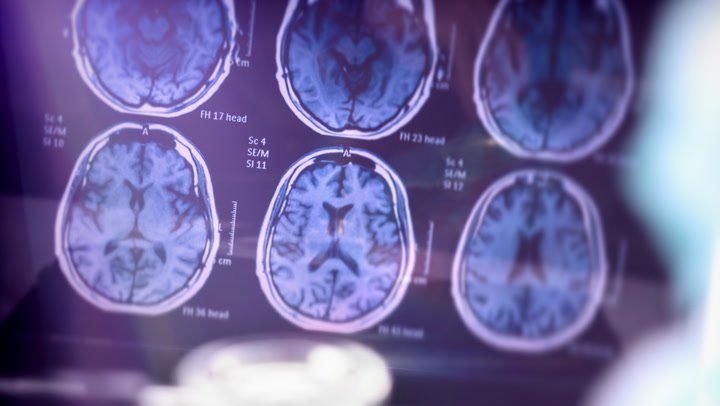Like the rest of your body, your brain changes as you age. Brain health in your aging becomes increasingly important as subtle shifts start happening. But don’t worry—some forgetfulness is normal! Have you ever walked into a room and forgotten why you went there? Yep, that’s just your brain being human.
The trick is knowing what’s typical and what might need a closer look. Occasional memory blips? No biggie. But if you notice more persistent changes—like struggling to follow conversations or forgetting important info—it might be time to give your brain a little extra TLC.
The good news is that staying proactive can make all the difference. From mental exercises and healthy habits to recognizing the early signs of trouble, there’s plenty you can do to support your brain as it ages. Ready to dive deeper? Let’s explore how you can keep your mind sharp and thriving for years to come!
Understanding Brain Aging
Aging brains and mental health are deeply connected. Your brain goes through natural changes that can affect thinking, memory, and overall cognitive function. These changes happen gradually and don’t always signal serious problems.
Common signs of normal aging include occasional memory lapses, slower processing speed, mild difficulty finding words, taking more time to learn new skills, and a slight decline in multitasking ability. These are typical and should not be a cause for concern.
Warning Signs to Watch:
- Persistent memory loss
- Significant communication problems
- Major decision-making challenges
- Frequent disorientation
- Dramatic personality changes
Memory Loss Beyond Forgetfulness
Forgetting where you put your keys happens to everyone. However, consistent and significant memory problems require closer examination. Brain health impacts different age groups in various ways. Maintaining brain health in your 40s is crucial, as early signs of cognitive decline may start to appear.Healthy brain aging involves recognizing when occasional forgetfulness becomes more serious and taking proactive steps to support memory and cognitive function.
Red Flags for Memory Concerns:
- Repeatedly asking the same questions
- Forgetting recent conversations
- Struggling to recognize familiar people
- Missing important appointments regularly
- Losing track of personal history details
Difficulty Finding Words and Communication Issues
Language skills naturally evolve as we age, and occasionally struggling to find the right word is normal. However, when communication problems become persistent, they could signal underlying issues that require attention.
Some warning signs to watch for include frequent pauses while speaking or substituting specific words with vague terms. A person might also find it difficult to follow or join conversations, making social interactions harder over time.
Other indicators include trouble understanding complex instructions or losing track of discussions quickly. If these challenges become noticeable, it’s important to seek guidance to determine the cause and explore potential solutions.
Declining Problem-Solving and Decision-Making Skills
Your brain’s ability to solve problems and make decisions can gradually change. Pay attention when routine tasks become increasingly challenging.
Potential Cognitive Decline Indicators:
- Trouble managing monthly bills
- Making poor financial decisions
- Difficulty following recipe steps
- Struggling with familiar technology
- Reduced ability to plan or organize
Trouble with Concentration and Focus
Maintaining focus becomes more challenging as your brain ages. Short attention spans and increased distractibility can signal potential cognitive changes.
Concentration Challenge Signs:
- Difficulty reading long articles
- Frequent mind wandering during conversations
- Struggling to complete familiar tasks
- Increased need for repetition
- Reduced ability to filter out background noise
Mood Changes and Irritability
Emotional shifts can accompany cognitive changes. Unexplained mood swings might indicate more than typical age-related adjustments.
Emotional Red Flags:
- Sudden depression episodes
- Increased anxiety
- Quick temper
- Unusual emotional reactions
- Significant personality shifts
Disorientation and Confusion
Getting temporarily confused happens, but persistent disorientation requires attention. Losing track of time, place, or personal details can be serious.
Disorientation Warning Signs:
- Getting lost in familiar neighborhoods
- Forgetting the current date or season
- Difficulty tracking time passage
- Struggling to recognize familiar locations
- Confusion about personal details
Poor Coordination and Balance Issues
Poor coordination and balance issues can often point to changes in brain health, as physical coordination is closely tied to neurological function. Increased clumsiness, balance difficulties, or trouble with familiar physical tasks might signal underlying concerns. Some common signs include:
- Frequent minor accidents or falls
- Difficulty with precise movements or reduced hand-eye coordination
- Struggling to complete everyday physical tasks
Addressing these changes early can be crucial for maintaining overall health and wellbeing.
Changes in Sleep Patterns
Sleep and brain health are deeply interconnected. Significant sleep disruptions can both result from and contribute to cognitive changes.
Sleep-Related Warning Signs:
- Consistent insomnia
- Excessive daytime sleepiness
- Fragmented sleep patterns
- Dramatic changes in sleep schedule
- Reduced sleep quality
Loss of Interest in Hobbies and Social Activities
Withdrawal from activities that were once enjoyed may indicate cognitive or emotional changes. Staying socially engaged is essential for maintaining brain health and overall well-being, as regular interaction helps stimulate the mind and foster connections.
Cognitive decline symptoms include signs of reduced engagement, such as avoiding social events, losing interest in hobbies, reduced communication with friends, lack of motivation, and increased isolation. Recognizing these signs early is important in addressing potential underlying issues and ensuring continued emotional and cognitive health.
Increased Difficulty Learning New Information
Your brain’s plasticity changes with age. While learning slows, a complete inability to acquire new skills might indicate deeper issues.
Learning Challenge Indicators:
- Struggling with new technology
- Difficulty understanding new concepts
- Taking significantly longer to learn
- Reduced adaptability
- Resistance to learning
Conclusion: Taking Proactive Steps
Recognizing these signs doesn’t mean disaster. Many cognitive changes can be managed or slowed through lifestyle choices. Early detection and intervention are key.
It’s important to seek medical advice if symptoms persist or worsen, daily functioning becomes difficult, family or friends express concern, you feel consistently confused, or cognitive changes begin to affect your relationships.
To support brain health, consider regular medical check-ups, engaging in brain-stimulating activities, maintaining a healthy diet, staying active with regular exercise, fostering social connections, and managing stress effectively.
Your brain deserves consistent care and attention. Start with small, positive changes today. Stay curious, engaged, and proactive about your cognitive health.
Remember: Age is just a number. With the right support and lifestyle choices, you can maintain a vibrant, active mind throughout your life.
References:
1. The Effects of Age, Mental Health, and Comorbidity on the Perceived Likelihood of Hiring a Healthcare Advocate
https://pmc.ncbi.nlm.nih.gov/articles/PMC5315032
2. Change in Sleep Duration and Cognitive Function: Findings from the Whitehall II Study



